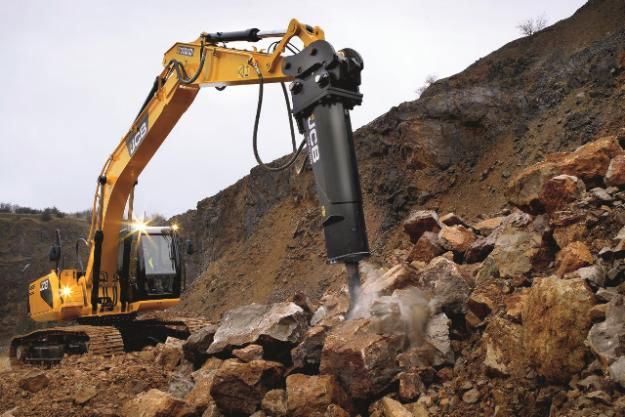Specialist Septic Ohio - Trusted Septic Tank Experts in Ohio
Specialist Septic Ohio - Trusted Septic Tank Experts in Ohio
Blog Article
Comprehensive Excavation Techniques: Understanding the Fundamentals for Success
In the world of building and construction and civil design, the relevance of efficient excavation techniques can not be overemphasized. The careful preparation, exact execution, and careful interest to detail required in excavation tasks require a thorough technique that includes numerous fundamental elements. From first dirt evaluation to the implementation of precaution and normal progression surveillance, grasping these core elements is essential for accomplishing success in any kind of excavation venture. However, truth proficiency lies not merely in recognizing these principles yet in effortlessly integrating them to navigate the intricacies of excavation projects with skill.
Comprehending Excavation Task Preparation

Effective excavation jobs are improved the foundation of complete and careful preparation. The initial phase of any excavation job is the drawing board, where important decisions are made that can considerably influence the result of the task. Throughout this phase, it is important to collect all relevant information about the website, including topographical studies, soil make-up, and any type of prospective threats that may exist. Recognizing the task scope, budget plan, and timeline restraints is vital for developing a detailed excavation strategy that makes certain the task's success.
One key element of excavation task preparation is the development of a thorough timeline that describes the series of milestones, target dates, and activities. By carefully taking into consideration all these factors throughout the planning phase, excavation jobs can be carried out successfully and properly, leading to successful results - dump truck companies in ohio.
Soil Evaluation and Site Evaluation
Conducting detailed dirt analysis and site assessment is a vital action in the prep work stage of any type of excavation job. Dirt analysis entails identifying the composition, structure, and homes of the soil at the excavation site. This details is important for understanding the soil's bearing ability, wetness material, and potential for erosion, which are vital variables in determining the excavation methods and equipment needed for the task.
Site examination surpasses soil evaluation and incorporates a wider analysis of the overall site conditions. This evaluation consists of recognizing any prospective hazards, such as below ground energies, environmental problems, or unpredictable terrain, that can affect the excavation process. By completely reviewing the site, project managers can create efficient excavation approaches that focus on security, effectiveness, and environmental security.
Utilizing advanced modern technologies like ground-penetrating radar, soil tasting, and drone surveys can improve the precision and effectiveness of soil analysis and site examination. Investing time and sources in these initial steps can ultimately save time and avoid expensive delays or complications during the excavation procedure.
Devices Choice and Usage
Effective excavation jobs count greatly on calculated devices selection and use to make sure optimum efficiency and productivity. Choosing the right tools for the task is vital in making the most of performance and decreasing downtime. Variables such as the kind of dirt, deepness of excavation, and job scope play a considerable role in identifying the most ideal devices for the job at hand.

Along with selecting the ideal tools, proper use is essential to project success. Operators should be trained to take care of the devices safely and efficiently - excavating ohio. Routine maintenance checks and prompt repair services help stop failures and guarantee regular performance throughout the task
Precaution and Rules Conformity
In the world of excavation projects, prioritizing safety and security steps and compliance with policies is vital to ensuring a safe and directory secure and lawfully sound operational environment. Precaution incorporate a variety of techniques, consisting of carrying out thorough website analyses, applying correct signage and barriers, and providing adequate security training for all workers associated with the excavation process. Adherence to laws, such as OSHA needs in the United States, ensures that the excavation job satisfies the necessary requirements to safeguard employees, onlookers, and the surrounding atmosphere.

Surveillance Progression and Adjusting Strategies
Exactly how can predict managers properly track the improvement of excavation projects and adjust their techniques as necessary to maximize outcomes? Surveillance development is vital for making sure that excavation tasks remain on track and fulfill deadlines. Task managers can make use of numerous tools and strategies to track development, such as daily report card, regular website assessments, and advanced tracking modern technologies like drones and general practitioners tracking systems. By continuously monitoring the task's innovation, supervisors can identify any type of potential delays or problems at an early stage and take proactive measures to resolve them.

Final Thought
To conclude, understanding the basics of thorough excavation strategies is vital for the success of any kind of job. By understanding task preparation, examining dirt and site problems, choosing appropriate devices, following safety laws, and keeping an eye on progress, job supervisors can make certain a smooth and efficient excavation process. Carrying out these approaches will certainly result in successful results and lessen prospective dangers or troubles throughout the excavation straight from the source project.
The preliminary phase of any type of excavation task is the planning phase, where vital decisions are made that can substantially affect the end result of the project. Understanding the project timeline, spending plan, and range restrictions is vital for Get More Info creating a thorough excavation strategy that ensures the project's success.
Exactly how can project supervisors effectively track the improvement of excavation jobs and adapt their methods appropriately to optimize results? By closely keeping track of progress and being willing to adjust approaches, task supervisors can improve the general success of excavation tasks.
By understanding task preparation, examining dirt and site conditions, choosing ideal tools, complying with security regulations, and keeping an eye on progression, job supervisors can ensure a reliable and smooth excavation procedure.
Report this page